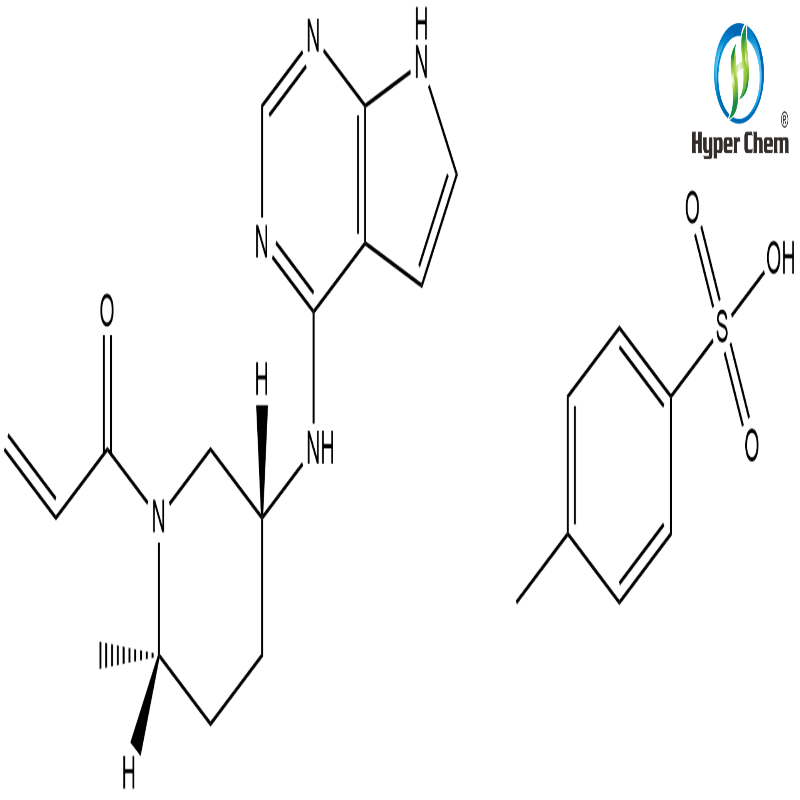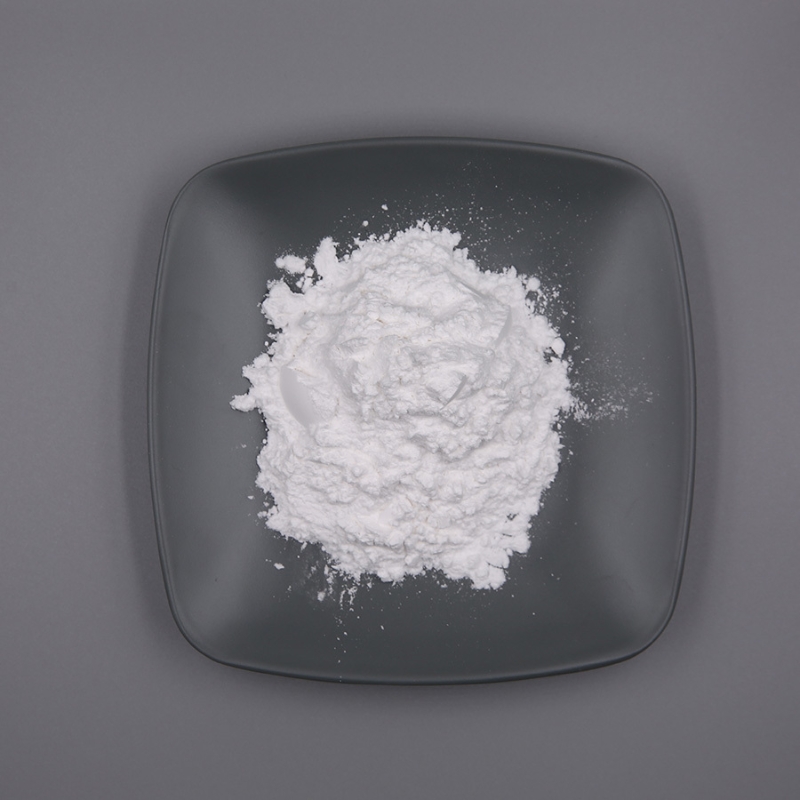-
Categories
-
Pharmaceutical Intermediates
-
Active Pharmaceutical Ingredients
-
Food Additives
- Industrial Coatings
- Agrochemicals
- Dyes and Pigments
- Surfactant
- Flavors and Fragrances
- Chemical Reagents
- Catalyst and Auxiliary
- Natural Products
- Inorganic Chemistry
-
Organic Chemistry
-
Biochemical Engineering
- Analytical Chemistry
-
Cosmetic Ingredient
- Water Treatment Chemical
-
Pharmaceutical Intermediates
Promotion
ECHEMI Mall
Wholesale
Weekly Price
Exhibition
News
-
Trade Service
▎ according to the statistics of Johns Hopkins University, the number of patients diagnosed with covid-19 in the world has exceeded 5 million, and nearly 330000 people have lost their lives.one of the important reasons why covid-19 is widely spread is that the virus can be transmitted when the infected person has no or only mild symptoms.and an important cause of death is the so-called "cytokine storm". The novel coronavirus pneumonia is, which is an uncontrolled excessive inflammatory reaction in the patients with new coronavirus pneumonia, which can damage the lungs and other important organs. Novel coronavirus pneumonia,, what causes the rapid rise of the level of virus in the initial respiratory tract of new crown pneumonia patients and the excessive inflammatory reaction in severe patients? Recently, a study published in the top scientific journal Cell found a unique feature of new coronavirus, influenza virus, and sars-cov-1 in regulating human immune response.one of the co authors of the study, Professor Benjamin ten oever, a virologist at the Icahn School of medicine at Mount Sinai, said: "I haven't seen this in more than 20 years of virus research. Novel coronavirus pneumonia "novel coronavirus pneumonia" is not only a possible explanation for the cause of cytokine storm in patients with new crown pneumonia, but also a potential strategy for treating new crown pneumonia, the discovery of.interpretation of the combination fist of virus eradication this research should start with the immune response of human body to virus invasion.when the virus infects a cell and propagates in the cell, it triggers the cell's early warning system.these early warning systems activate the cellular immune response of the immune system by recognizing foreign RNA fragments present in cells.the innate immune response of cells consists of two parts. The first part is the secretion of interferon (IFN), including interferon I (IFN-I) and interferon III (ifn-iii).these cytokines stimulate the expression of a series of interferon stimulated genes (ISGS).the main function of this signaling pathway is to inhibit virus replication and proliferation.the other part is to recruit white blood cells from other parts of the body to fight the virus by secreting chemokines.these two parts can be said to be the combination of innate immune system against virus invasion. Interferon plays a role in delaying the proliferation of virus in the early stage of virus infection, while the "reserve team" of chemokines can help to eliminate the virus completely.in order to combat the defense mechanism of the immune system, viruses have evolved different coping methods.many viruses carry genes that inhibit interferon production and chemokine secretion at the same time, thus weakening the immune response of cells to virus invasion. however, in this study, the researchers found that NCV is different in inhibiting cellular immune response. Influenza virus and SARS virus can inhibit both interferon and chemokine pathways, while NCV inhibits interferon signaling pathway but not chemokine mediated signaling pathway. the unbalanced cellular immune response researchers of yaomingkant content team detected gene expression changes caused by NCV infection and other respiratory virus infections in four different models: in vitro cell culture model, ferret neocoronavirus infection model, lung tissue of deceased NCV infected patients, and serum samples of NCV infected patients 。 in all models, they found that the gene expression stimulated by new coronavirus had the same characteristics: the expression level of IFN-I and ifn-iii was very low, but the expression level of many chemokines (including CCL2, ccl8, IL-6, etc.) continued to increase. this unbalanced immune response means that in the early stage of infection, due to the lack of interferon expression, the replication of new coronavirus is not inhibited, resulting in the production of a large number of viruses. These viruses not only destroy lung tissue, but also attract more pro-inflammatory leukocytes to migrate to the lung. The novel coronavirus pneumonia is a major factor responsible for the emergence of acute respiratory distress syndrome (
) in patients with new crown pneumonia, and may be the result of cytokine storm production and the occurrence of new respiratory syndrome in pneumonia. } graphical summary of this study (photo source: reference [1]). A study on the mechanism of inhibition of interferon pathway by new coronavirus has been published in the preprint biorxiv recently, which provides clues on how the new coronavirus can effectively inhibit the interferon pathway. in this study, the Japanese team found that the orf3b gene in the genome of new coronavirus was different from that of SARS virus. a mutation in the orf3b gene of the new coronavirus allows them to produce a shorter orf3b protein. However, this 22 amino acid protein is more effective than the orf3b protein of SARS virus in inhibiting interferon type I. these studies show that the new coronavirus has a stronger ability to inhibit interferon signaling pathway than SARS virus. These novel coronavirus pneumonia, which is , allows them to proliferate rapidly in early infection, which is consistent with the high level of virus that can be observed in patients with new crown pneumonia. this not only increases the risk of infecting others, but also stimulates stronger inflammatory responses. The novel coronavirus pneumonia, which add fuel to the flames, is a unique feature of . It can be called an inflammatory reaction and is a major cause of death in patients with severe new crown pneumonia. then, can these findings provide ideas for the development of therapeutic methods? The authors of novel coronavirus pneumonia and anti inflammatory drugs in the treatment of new crown pneumonia, the authors of the study, said that because overactive inflammation is an important feature of COVID-19, we should focus on exploring the role of approved anti inflammatory and immunomodulatory drugs in the treatment of COVID-19 patients. this idea is being tested in clinical trials, including IL-6 inhibitors, JAK inhibitors and other anti-inflammatory drugs in the treatment of severe covid-19 patients, and the efficacy has been evaluated in a number of clinical trials. and the ability of NCV to inhibit interferon production means that the use of interferon in the early stage of infection may be one of the effective strategies to prevent the deterioration of patients' condition. researchers have demonstrated that interferon can effectively inhibit the replication of new coronavirus in vitro. in a clinical study published in the lancet a few days ago, the research team in Hong Kong, China found that the early use of triple therapy of lopinavir / ritonavir + ribavirin + interferon β - 1B, compared with lopinavir / ritonavir, significantly accelerated the negative change of viral nucleic acid detection and symptom improvement, and shortened the length of hospital stay. Br / > it is worth further research on the basis of interferon beta therapy. at the beginning of the covid-19 outbreak, one of the important reasons hindering the response to the outbreak is that we know too little about the new coronavirus. with the further research on new coronavirus, we hope that these insights obtained from basic research can be transformed into more effective prevention and treatment methods.







